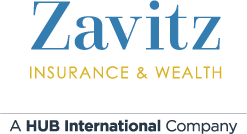The First Home Savings Account
It’s no secret that buying your first home is becoming increasingly difficult. In an effort to help those who have not owned a home in the last 4-5 years, the Government of Canada unveiled the First Home Savings Account (FHSA) in April 2023 to help with the initial cost of a down payment.
Previously, the only other plan specifically designed to help with down payments was the Home Buyers Plan through a Registered Retirement Savings Plan (RRSP). Under this plan, eligible first-time home buyers could withdraw up to $60,000 from their RRSP towards the purchase of their first home. You could withdraw the funds tax-free but had to recontribute them to your RRSP over 15 years. This is where the FHSA stands out, as the money does not need to be repaid over time.
As with any registered plan, the FHSA has certain criteria and limits to be aware of:
It can be used in combination with the Home Buyers Plan.
You must be 18 years of age and a Canadian resident to open an account.
The annual contributions are capped at $8,000.
The maximum lifetime contribution is $40,000.
Any unused contribution room carries forward one year.
The account may remain open for 15 years.
The withdrawal is non-taxable upon the following conditions:
You have not owned a home in the current calendar year, or the 4 years preceding.
The new home is located in Canada.
You must occupy the home as your principal residence within 1 year of purchase.
If funds are withdrawn for reasons other than a qualifying home purchase, they are taxable.
If you don’t purchase a home, you can transfer your savings to your RRSP on a non-taxable basis.
If you are already saving in an RRSP, and have hit the $60,000 maximum, the FHSA is going to give you another tax-deductible way to save for a home, but it will take a bit longer to accumulate money. Since there is an annual contribution limit of $8000, it will take you a minimum of 5 years to save the allowable maximum of $40,000. Unlike the TFSA carry-forward rules, the FHSA contribution room only starts after the account has been opened.
The biggest question we have been hearing is if it is better than the Home Buyers Plan, or which one is best? As with anything financial, the answer is “it depends”. Our advisors are always here to help you navigate the best option for your goals.

